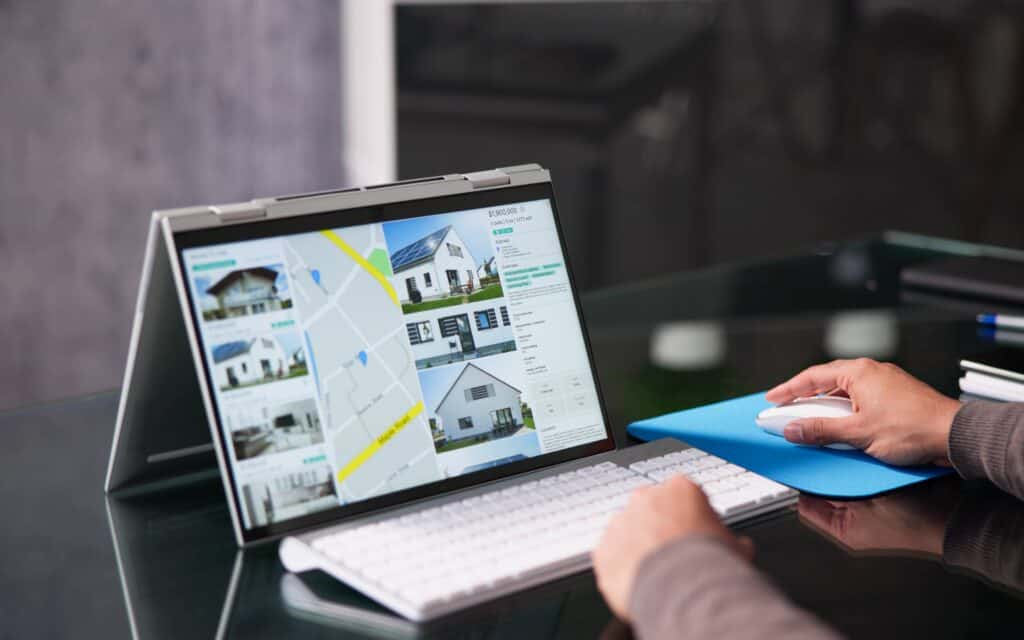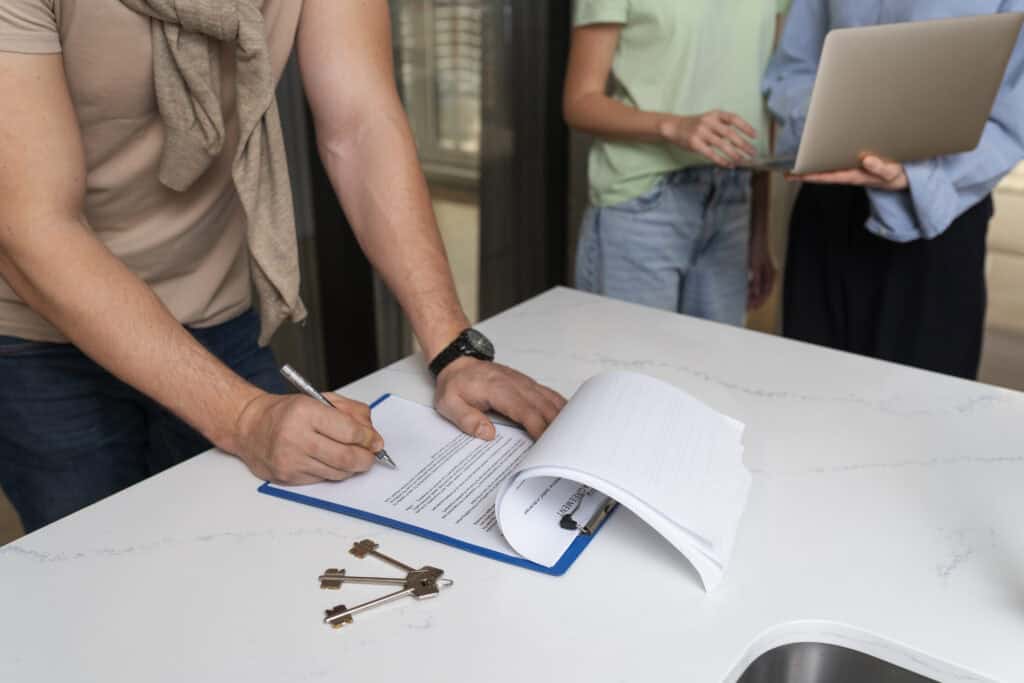
By Leah Bentley August 5, 2025
Being a landlord, especially on a small scale, can feel like juggling multiple jobs at once. You are the leasing agent, the maintenance coordinator, the bookkeeper, and sometimes even the customer service rep. While large property management companies have teams and systems in place, small landlords often manage everything on their own. Fortunately, technology is leveling the playing field. Small landlord software solutions are designed to simplify property management tasks and bring structure to your workflow. These tools provide features that help save time, reduce stress, and improve the overall management of your rental business. What used to take hours with spreadsheets, paper forms, and scattered notes can now be done with a few clicks. From collecting rent to managing maintenance requests, the right software can make a significant difference even for landlords with just one or two properties.
Online Rent Collection and Payment Tracking

One of the most valuable features in landlord software is the ability to collect rent online. Instead of waiting for checks to arrive or depositing cash, tenants can pay directly through the software using their bank account, debit card, or credit card.
Online rent collection offers convenience and reliability. Payments are tracked automatically, and landlords receive instant notifications. You can see who has paid, who is late, and what is still due, all from one dashboard. Most platforms allow you to set due dates, enable automatic reminders, and apply late fees based on your lease terms. This helps ensure consistent cash flow and reduces the need for awkward conversations about missed payments. For tenants, paying online is faster and easier. They can schedule recurring payments or pay on the go, which increases the likelihood of on-time rent. This convenience creates a more professional and seamless experience for everyone involved.
Automated Tenant Screening
Finding the right tenant is critical to a smooth rental experience. Small landlord software often includes built-in tenant screening tools that help you evaluate applicants without having to chase down documents or run reports manually. These screening features typically include credit checks, background reports, and eviction history. Tenants fill out a secure online application and authorize the checks, and you receive a detailed report within minutes.
By using standardized screening tools, you reduce the risk of bias and ensure you are treating all applicants fairly. This not only helps you choose reliable tenants but also keeps you compliant with fair housing laws. Automated screening saves time and adds a layer of professionalism to your rental process. It ensures you are making informed decisions without having to outsource the task or manage paperwork manually.
Online Lease Agreements and Digital Signatures

Managing lease agreements can be a challenge without a clear system. Small landlord software simplifies this by offering digital lease creation and signing. You can upload your own lease template or use customizable templates provided by the platform. Once the lease is ready, you can send it to tenants for review and electronic signature. Both parties receive a copy, and the agreement is stored securely in your account for future reference.
Digital leases eliminate the need for printing, mailing, or meeting in person to sign documents. This is especially helpful if your tenant is moving from out of town or you have a busy schedule. Having lease agreements stored and organized online also helps with renewals. You can review past terms, update them as needed, and send out renewal agreements quickly. This creates a smooth transition between lease terms and avoids gaps in occupancy.
Maintenance Request Tracking
Responding to maintenance issues quickly is part of being a responsible landlord. When tenants have to call or email with problems, it is easy for requests to get lost or delayed. Maintenance tracking features in landlord software solve this problem. Tenants can submit maintenance requests through a portal or app, often including photos or notes about the issue. Landlords receive alerts and can assign tasks to service providers, track progress, and communicate with tenants directly through the system. Having all maintenance activity logged in one place makes it easier to stay organized and prioritize urgent issues. You can see when requests were made, who handled them, and how long they took to resolve. Maintenance records are also useful during lease renewals, inspections, or if there are disputes about the condition of the property. Keeping everything documented protects both you and the tenant and ensures transparency throughout the process.
Accounting and Expense Management
Managing rental income and expenses is essential for tracking your profitability and staying on top of taxes. Small landlord software often includes accounting tools designed specifically for rental property owners. These features allow you to categorize income, record expenses, and generate reports on cash flow and profit margins. Some systems can even sync with your bank account or payment processor to pull in transactions automatically. You can track everything from rent payments and repairs to insurance and property taxes. At tax time, these records make it easy to file deductions and share reports with your accountant. For landlords managing more than one property, the ability to view performance by unit or building helps identify which investments are most profitable. This insight can guide future decisions on pricing, maintenance, or portfolio growth.
Tenant Communication Tools
Clear communication helps prevent misunderstandings and builds trust between landlords and tenants. Small landlord software platforms often include messaging features that make it easier to keep communication centralized and professional.
You can send reminders about rent, maintenance updates, or lease renewals through email or in-app messages. Some systems let tenants reply directly, creating a two-way conversation thread that is stored for reference.
Centralized messaging ensures that important conversations are not lost in text threads or forgotten voicemails. If issues arise, having a record of what was said and when provides clarity and protection for both sides.
Good communication leads to better tenant satisfaction and fewer conflicts. Having a built-in tool for this purpose keeps everything organized and consistent, which is especially helpful when managing multiple tenants or properties.
Vacancy Listings and Rental Marketing
Filling vacancies quickly is important for keeping your rental profitable. Many small landlord platforms include tools for creating rental listings and posting them across popular rental websites from a single dashboard. You can enter property details, upload photos, set your price, and publish the listing to platforms like Zillow, Trulia, and Apartments.com. This saves time and increases exposure without requiring you to create multiple listings manually.
Some software even tracks inquiries and lets you schedule showings or reply to potential tenants directly. This centralized system helps you stay on top of leads and convert them into applications faster. Having a professional-looking listing also helps attract high-quality tenants. Combined with automated applications and screening tools, this creates a streamlined marketing funnel that reduces your vacancy time.
Document Storage and File Management
Landlords have to manage a range of documents, from lease agreements and inspection reports to receipts and correspondence. Small landlord software makes this easier with built-in document storage.
You can upload files and organize them by tenant, property, or category. This ensures that important paperwork is always available when you need it and reduces the risk of losing documents in cluttered email inboxes or filing cabinets.
Digital document storage is especially helpful for managing multiple units or long-term tenancies. When everything is stored in one place, you save time and reduce frustration when issues come up or renewals are due. Keeping organized records also helps protect you in the event of a dispute or audit. It demonstrates that you are running your rental like a professional business and have the documentation to support your decisions.
Mobile Access and Usability
Landlords are often on the go, especially those managing properties while working a full-time job or living off-site. Mobile access to your landlord software makes it possible to manage tasks from anywhere. Most modern platforms offer apps or mobile-optimized websites. You can receive alerts, respond to tenant messages, approve applications, and update maintenance requests right from your phone. This level of accessibility is a game changer for small landlords. It ensures you never miss an important update and can respond quickly without being tied to a desk. Mobile access also benefits tenants. They can pay rent, request maintenance, or view their lease through the app, creating a better overall experience and reducing the need for phone calls or office visits.
Scalability for Future Growth
Even if you are starting with just one or two properties, choosing a platform that can grow with you is a smart move. Many small landlord software options offer scalable pricing and features that adapt as your portfolio expands. You may not need advanced reporting or automated lease renewals right away, but having access to these tools later can save you from switching platforms as your needs change.
Scalability ensures that the time and effort you invest in learning the software will continue to pay off as your rental business grows. Whether you plan to acquire more units or manage properties for others, a flexible platform gives you room to grow without starting over.
Conclusion
Managing rental properties as a small landlord can be challenging, but it does not have to be overwhelming. With the right software tools, many of the time-consuming and stressful parts of property management become faster, easier, and more professional. Features like online rent collection, tenant screening, maintenance tracking, and accounting help you stay organized and provide better service to your tenants. Built-in communication tools and mobile access ensure that you stay connected and responsive, even when you are on the move.
Most importantly, small landlord software helps you run your rental like a business. It brings structure to your process, protects you from costly mistakes, and creates a better experience for everyone involved. Whether you manage one property or several, these tools can make a big difference in your day-to-day operations. By investing in software that supports your goals and fits your style, you set yourself up for long-term success in the rental market.